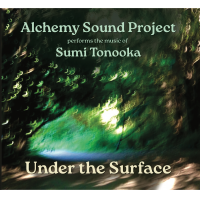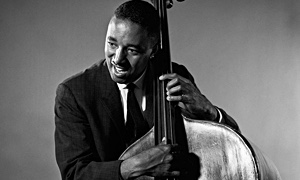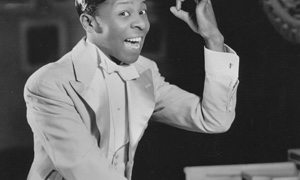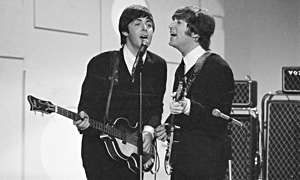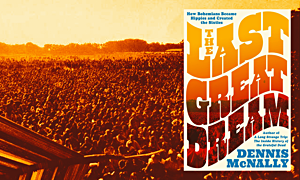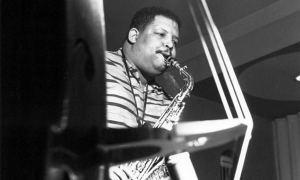Home » Jazz Articles » Book Review » Chasing The Masters: First Takes Of A Modern Drumming Artist
Chasing The Masters: First Takes Of A Modern Drumming Artist
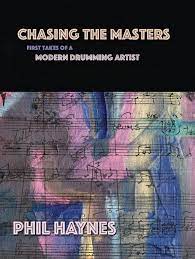 Chasing The Masters: First Takes Of A Modern Drumming Artist
Chasing The Masters: First Takes Of A Modern Drumming Artist Phil Haynes
296 pages
ISBN: #979-886-0200883
Self Published
2023
I recently attended several recitals by instrumentalists, composers, and arrangers from the renowned Jazz Studies Program at William Paterson University. The level of musicianship was uniformly high in these stimulating and thought-provoking performances, and the alleged homogeny of jazz in the academy was nowhere to be found. Hearing idealism and enthusiasm in the emerging, individualistic voices was deeply gratifying. The music served as encouragement to continue to follow the graduates' music and careers in the years to come.
The flip side of these positive experiences is that they inevitably raise thorny questions regarding the graduates' futures. If they intend to pursue careers as professional musicians, will jazz performance, a field in which it is notoriously difficult to find sufficient work to make a living, take a backseat to playing a lot of other kinds of music that pays the bills but doesn't necessarily nourish the imagination or soul?
Instead, will they choose to work day jobs that enable them to keep artistic visions and identities as jazz musicians intact? And how will they fare in an increasingly do-it-yourself world, which necessitates a high degree of self-reliance and tenacity in terms of forming ensembles, finding gigs, managing artistic and business matters, as well as conceiving of, financing, producing, and promoting recordings?
Is it safe to assume that the influences of the university jazz curriculum and current peer group will be subject to many other stimuli as the years go by, leading to new and unforeseen directions? Or will their identities and performances remain firmly rooted in recognizable, celebrated jazz traditions? Will even the best and most persistent of them have difficulty coping with the scarcity of recognition and affirmation in an art form with a smaller fan base? Most importantly, will these promising young musicians continue to find kindred spirits to accompany them in creative musical pursuits?
These issues permeate Phil Haynes' autobiography Chasing The Masters: First Takes of a Modern Drumming Artist. For those unfamiliar with his work, Haynes is an accomplished performer, composer, bandleader, recording artist, member of cooperative ensembles, educator, and entrepreneur. He has garnered much positive attention from high-echelon critics in well-known print publications and broadcast media. However, emphasizing his credentials or dropping the names of many of his cohorts is beside the point. More important are the ways in which Haynes has evolved, artistically and in terms of the business of jazz and improvised music, managing to survive and often thrive amid myriad challenges.
After graduating high school, Haynes had the good fortune to land at Coe College, a liberal arts school in Cedar Rapids, Iowa, with a strong music program. He immediately encountered

Paul Smoker
trumpet1941 - 2016
Smoker's teaching style included an insistence—in front of the school's big band—that his young charge purge a substantial collection of

Buddy Rich
drums1917 - 1987

Anthony Braxton
woodwindsb.1945
An early indication of the open-minded, eclectic musician Haynes would eventually become is the willingness to embrace Smoker's insistence on exploring all corners of jazz and paying close attention to modern classical music. Haynes stays open to the creativity inherent in the music of Braxton, Arnold Schoenberg, Karlheinz Stockhausen, and others. While they were initially "all but impossible to digest readily, let alone make well-informed heads or tails of," he is willing to return to their music time and time again, throughout the decades, to gain a greater appreciation.
Haynes grapples with his disparate identities as an artist and those imposed on him by some musicians he encountered during decades spent in New York City's jazz and improvised music scenes. After college, he moved to NYC, intent on eventually landing the drum chair "in the equivalent of

Art Blakey
drums1919 - 1990
With friend and colleague guitarist
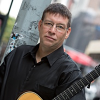
Jim Yanda
guitarAfter years of playing in NYC jam sessions, Haynes realizes that, despite the ability to hold his own in playing jazz standards and the Great American Songbook, he is likely to be decades away from "walking in through the standards front door." Apart from the fact that there were too many drummers ahead of him in the straight-ahead queue, it also belatedly dawns on him that talking to convention-minded peers about experiences with the jazz avant-garde may have turned him into something of an anomaly. Many people in "the real (so-called) mainstream...see me as avant-garde, and the real free players, the people who have only been playing free [most] all their lives—they see me as a jazz player."
Haynes' response to this quandary is to focus on "leading diverse bands and developing collectives." These activities require the addition of numerous skills, in addition to his evolution as a drummer and composer, such as finding and promoting gigs; initiating and funding recording projects; mastering the craft and the art of producing records and making all-important post-production decisions. He emphasizes that learning to do these things is a matter of "financial as well as artistic necessity." Despite being told by one jazz radio executive that "we don't play that kind of music," he insists that making records is "The only way to create a lasting international reputation..."
A handful of Haynes' numerous recording projects reveal a truly restless musical mind and, one suspects, a genuine desire to avoid being pigeonholed. ..."The very moment I have created and documented one artistically successful group," he writes, "I immediately start another, generally of sharp contrasts." For example, Music for Percussion & Piano (Corner Store Jazz, 2020) is comprised of non-Jazz, classically influenced improvisations. Initially inspired by Anthony Braxton and a product of years of thought and consideration, Sanctuary (Corner Store Jazz, 2013) solely showcases Haynes' drums and percussion. Another is The American Trilogy of records by Haynes' band Free Country which features fresh arrangements of American music ranging from pre-1900s tunes to Western soundtracks, Aaron Copeland, and various popular songs from the 1960s. And finally, No Fast Food, an adventurous trio comprised of Haynes, saxophonist/flutist

Dave Liebman
saxophoneb.1946

Drew Gress
bassb.1959
Although Haynes frequently offers insights into his evolution on the drum kit, three specific instances give the reader an idea of the breadth of his approach to the instrument. He interprets a question from

Lee Konitz
saxophone, alto1927 - 2020

Ellery Eskelin
saxophone, tenorb.1959

Herb Robertson
trumpetb.1951
After nearly 25 years in New York, Haynes married and moved to central Pennsylvania, where, at Bucknell University, his creativity, drive, and ability to get things done assumed new dimensions. He initiated a successful chamber jazz concert series that ran for ten years. Haynes founded The Bucknell Interdisciplinary Improvisation Ensemble, a new music aggregation comprised of Bucknell music majors, visiting international artists, and integrating "other faculty, staff and student artists from both the sciences and humanities." The multi-media ensemble performed regularly on campus and in other Lewisburg, Pennsylvania area venues. In addition to introducing Bucknell and central Pennsylvania to a lot of new music, Haynes created, from scratch, a two-semester course comprised of "an integrated jazz history and literature sequence, including a semester of classic jazz and one of modern jazz," which he taught for five years.
At the book's conclusion, Haynes makes it clear that he is a long way from "withdrawing into a much-dreaded international retirement." Although possessing "a natural and healthy nervousness about my own place in this great tradition," he is intent on shepherding a public and critical reappraisal of Paul Smoker's extensive body of work. Haynes has been "supervising updates to Paul's websites and presenting a comprehensive Bandcamp archive of his important albums," as well as advocating the issue of a multi-disc box set of the trumpeter's output.
Chasing The Masters is recommended to students, musicians, fans, or any interested party who wants to gain insight into the joys and difficulties of a life in jazz.
Tags
Book Review
Herb Robertson & Phil Haynes
David A. Orthmann
Independently Published
Paul Smoker
Buddy Rich
anthony braxton
Art Blakey
Jim Yanda
David Liebman
Drew Gress
Lee Konitz
Ellery Eskelin
Herb Robertson
Comments
PREVIOUS / NEXT
Support All About Jazz
 All About Jazz has been a pillar of jazz since 1995, championing it as an art form and, more importantly, supporting the musicians who make it. Our enduring commitment has made "AAJ" one of the most culturally important websites of its kind, read by hundreds of thousands of fans, musicians and industry figures every month.
All About Jazz has been a pillar of jazz since 1995, championing it as an art form and, more importantly, supporting the musicians who make it. Our enduring commitment has made "AAJ" one of the most culturally important websites of its kind, read by hundreds of thousands of fans, musicians and industry figures every month.






 Buy Now
Buy Now




